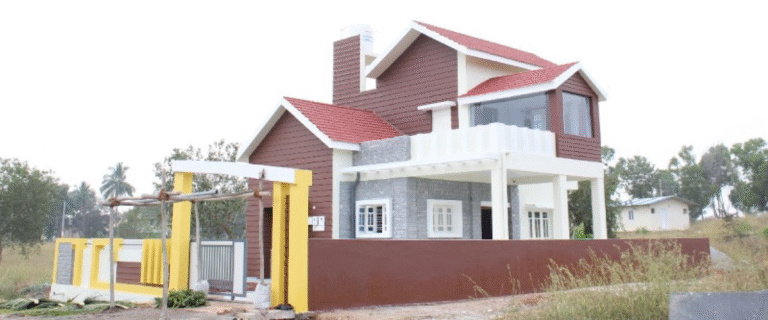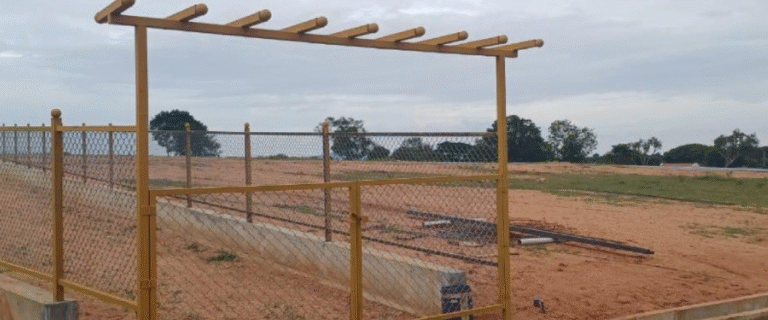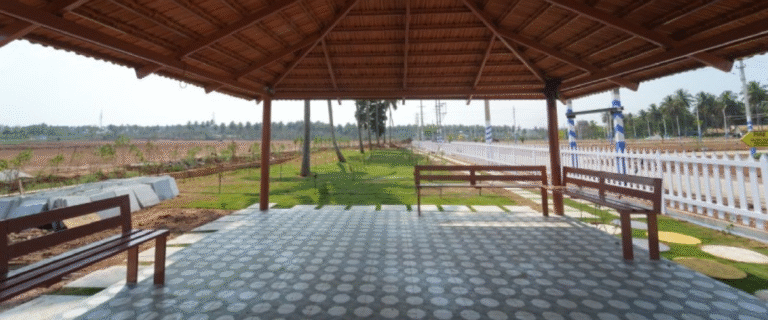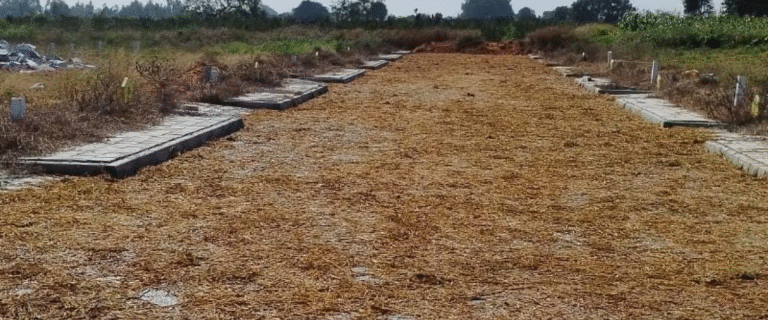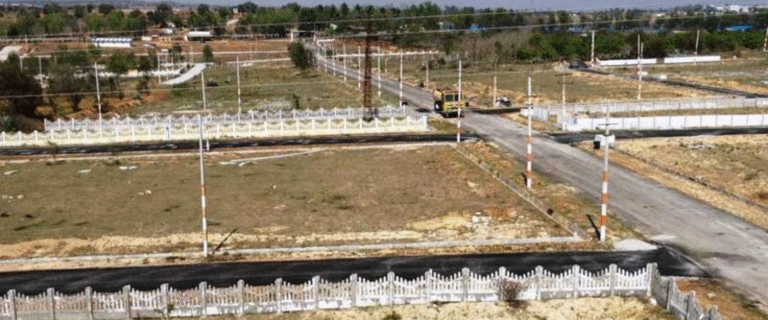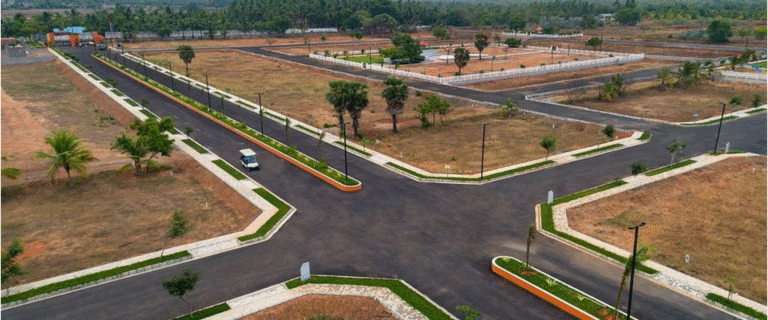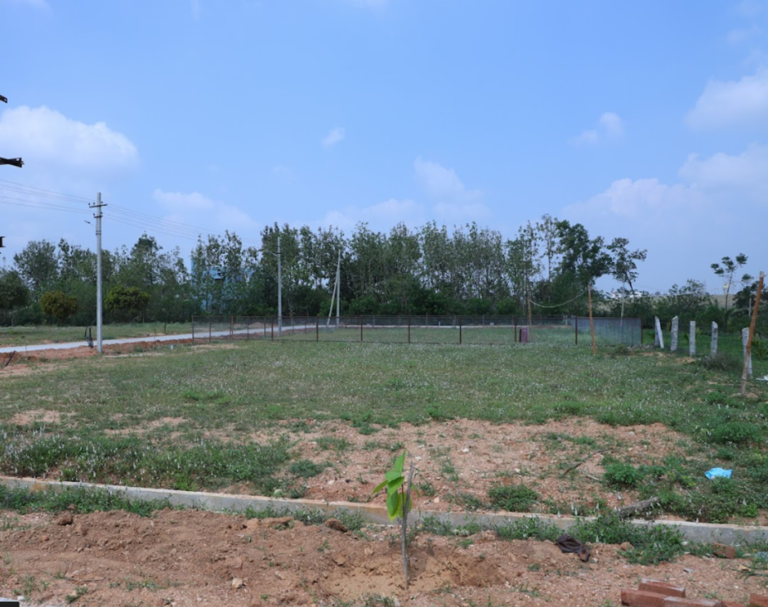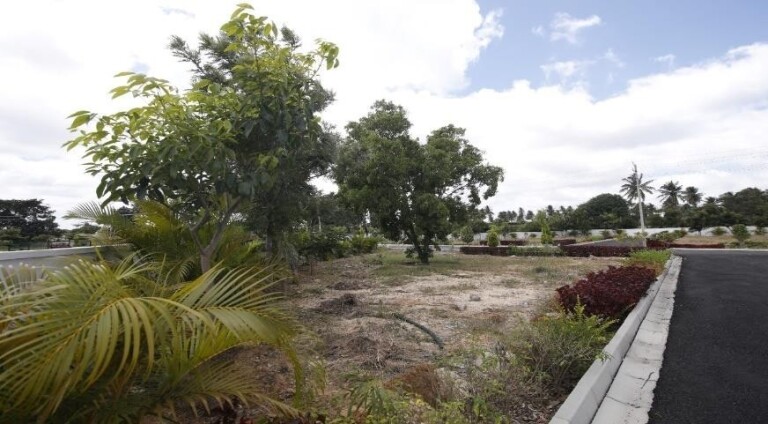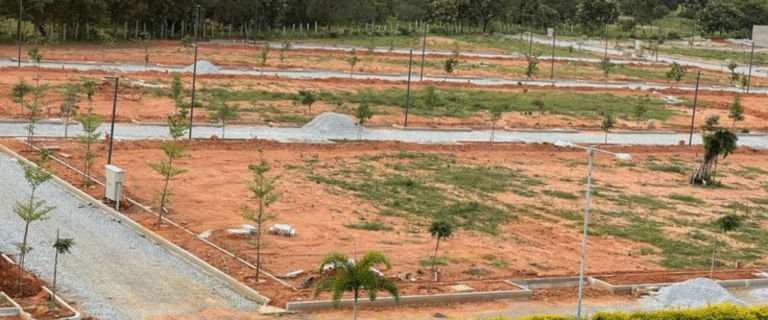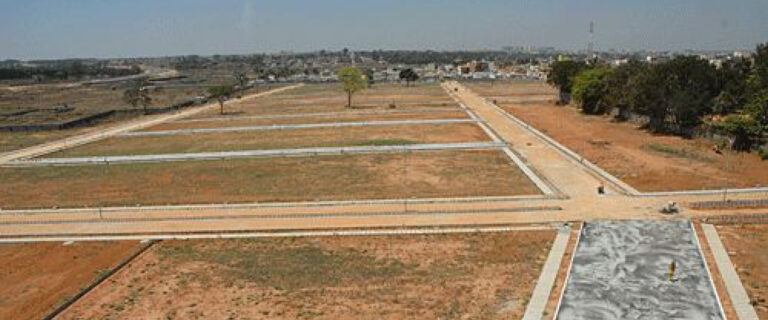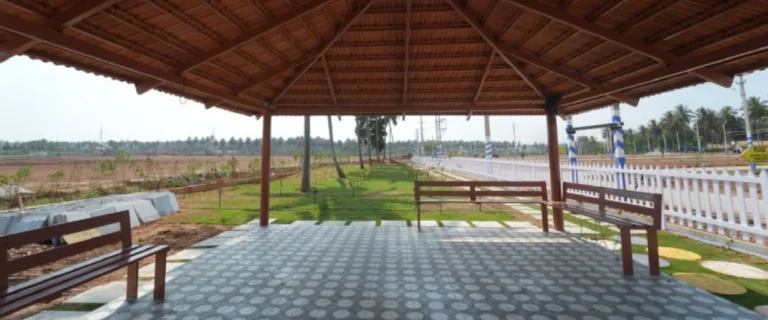Blogs
Affordable Plots and Sites in Mysore – Book Your Site Visit Now
Mysore, the cultural capital of Karnataka, has emerged as one of the most sought-after destinations for real estate investment in... Read More
Book a Site Visit in Mysore – Explore Ready-to-Build Plots Today
Are you dreaming of owning your piece of land in the culturally rich city of Mysore? Look no further! With... Read More
Book a Sites for sale in Mysore – Visit Today for Affordable Plot Options
Are you looking to invest in prime real estate opportunities in the heritage city of Karnataka? Book a Sites for... Read More
Discover Residential Plots for Sale in Chikkaballapur – Book Your Site Today
Are you looking for the perfect location to build your dream home? Furthermore, do you want a location that combines... Read More
Top Plots for Sale in Mysore – Book a Site Tour and Visit Today
Discover the finest Top Plots for Sale in Mysore and secure your dream property in one of Karnataka’s most culturally... Read More
Premium Sites for Sale in Chikkaballapur – Book a Site Tour and Visit
Are you searching for Premium Sites for Sale in Chikkaballapur that offer excellent investment potential and modern amenities? Look no... Read More
Potential Investment at Yesh Developers – Affordable Sites for Sale in Mysore
When it comes to smart real estate investment in Karnataka’s cultural capital, Yesh Developers stands out as a trusted name.... Read More
Exploring Residential Plots for Sale in Chikkaballapur – Yesh Developers
Chikkaballapur, a rapidly developing district in Karnataka, has emerged as one of the most sought-after destinations for real estate investment.... Read More
The Future of Real Estate: Prospects and Potential of Plots in Mysore at Yesh Developers
Mysore, the cultural capital of Karnataka, stands at the cusp of a real estate revolution. The city offers exceptional opportunities... Read More
Plots for Sale in Mysore: Your Gateway to Premium Living with Yesh Developers
Ongoing Projects by Yesh Developers are transforming Mysore’s real estate landscape. Currently, three exceptional developments are taking shape. First, Yesh... Read More
Sites for Sale in Mysore at Yesh Developers: Your Gateway to Prime Real Estate Investment
Yesh Developers delivers premium Sites for Sale in Mysore with excellence and reliability. Our numerous completed projects showcase quality construction... Read More
Explore Premium Plots in Chikkaballapur – Book Your Visit with Yesh Developers Now!
Are you searching for the perfect investment opportunity in one of Karnataka’s most promising locations? Look no further than the... Read More
Unlock Exclusive Plot Tours in Mysore – Schedule Your Visit with Yesh Developers Today!
Book A Free Site Visit Today Looking for premium plots in Mysore or valuable sites for sale in Mysore? Your... Read More
Tour Luxury Sites in Mysore Through Yesh Developers – Book Your Visit Today
Book A Free Site Visit Today Mysore, the cultural capital of Karnataka, is rapidly evolving into a sought-after destination for... Read More
Invest in Top Site in Mysore – Available in MysoreBook A Free Site Visit Today
Looking for the perfect investment opportunity? A premium site in Mysore offers exceptional potential for both residential and commercial development.... Read More
Find the Best Plot in Mysore – Book a Site Tour Today
Book A Free Site Visit Today Are you searching for the perfect Plot in Mysore to build your dream home... Read More
Unlock Premium Plots for Sale in Mysore – Reserve Yours Today
Book A Free Site Visit Today Mysore, the cultural capital of Karnataka, beckons with its rich heritage, royal legacy, and... Read More
Searching for Sites for Sale in Mysore? Start Your Journey Now
Book A Free Site Visit Today Investing in sites for sale in Mysore presents a transformative opportunity for homeowners, investors,... Read More
Discover Prime Sites for Sale in Chikkaballapur – Book Your Plot Tour Now
Book A Free Site Visit Today Looking to invest in one of the most strategic and serene locations near Bangalore?... Read More
Explore Plots for Sale in Chikkaballapur – Schedule Your Site Visit Today!
Book A Free Site Visit Today Are you searching for the perfect plots for sale in Chikkaballapur? Whether you’re looking... Read More
Explore Premium Plots for Sale in Mysore – Book Your Visit with Yesh Developers Now!
Book A Free Site Visit Today Why Invest in Plots for Sale in Mysore? Mysore, known for its royal heritage,... Read More
Find Your Dream Sites in Mysore – Start Your Journey with Yesh Developers Today!
Book A Free Site Visit Today Explore Premium Sites in Mysore with Yesh Developers Looking to invest in your future... Read More
Discover Elite Sites for Sale in Mysore – Let Yesh Developers Guide You!
Book A Free Site Visit Today Mysore, the cultural capital of Karnataka, has emerged as one of the most sought-after... Read More
Invest in Exclusive Sites in Mysore at Yesh Developers
Introduction : – The real estate landscape in India has witnessed a surge in demand for exclusive and well-planned residential... Read More
Exploring the Pinnacle of Living: Top Residential Plots for Sale in Mysore by Yesh Developers
Introduction : – Mysore, with its rich cultural heritage and serene landscapes, has emerged as a sought-after destination for those... Read More
Exclusive Sites for Sale in Mysore at Yesh Developers
Yesh Developers, a renowned name in the real estate industry, has a proven track record of delivering exceptional projects. With... Read More
Plots for Sale in Mysore – Yesh Developers
Exquisite , Affordable and Exclusive Plots for Sale in Mysore, Bangalore, Chikkaballapur, Hubli and Dharwad at Yesh Developers. YESH DEVELOPERS... Read More
Experience Bangalore’s Luxury at Sri Krishna Kuteera – Lavish Villas Await
Bangalore, the Silicon Valley of India, is known for its vibrant culture, technological prowess, and a unique blend of tradition... Read More
Unlocking the Potential: Creative Ways to Add Value to Your Property
Investing in your property at Yesh Developers goes beyond simply owning a piece of real estate; it’s about maximizing its... Read More
Understanding the Impact of Location on Real Estate Investment
Real estate investment is a multifaceted venture that involves a myriad of factors influencing its success or failure. Among these,... Read More
The Future of Real Estate: Yesh Developers’ Vision for Luxury Villas
In the ever-evolving landscape of real estate, developers are constantly pushing the boundaries to redefine luxury living. Yesh Developers, a... Read More
Let Yesh Developers Make Your Real Estate Dreams Come True this Christmas
As the holiday season approaches, the spirit of joy and celebration fills the air, bringing with it a sense of... Read More
Unlocking the Potential: Yesh Mega City’s DTCP-Approved Plots in Mysore
If you’re looking to invest in real estate in Mysore, the charming city known for its rich cultural heritage, consider... Read More
Yesh Developers Offers Plots For Sale this Deepavali Season—Is It the Right Time to Invest?
As the Deepavali season approaches, it brings with it the promise of new beginnings and opportunities. For those considering real... Read More
Understanding the Added Value of Corner Plots in Mysore with Yesh Developers
Are you in the market for a prime plot of land in the enchanting city of Mysore? If so, you’ve... Read More
Important Factors to Consider Before Investing in Open Plots in Mysore with Yesh Samruddhi
Mysuru, is a city steeped in culture and history, offering a delightful blend of old-world charm and modern development. It’s... Read More
The Importance of Site Visits in Mysore Property Purchases, Especially During Deepavali
Deepavali, also known as Diwali, is not just a festival of lights; it’s a celebration of new beginnings, prosperity, and... Read More
Unveiling Hidden Realities: Investment Insights into Luxury Villas in Mysore
Mysore, the city of palaces, is not just a testament to history but also a canvas for modern luxury living.... Read More
Analyzing the Worthiness of Residential Plots as Investments in Mysore
Mysore, or Mysuru, is more than just a city; it’s a blend of rich traditions and modern aspirations. As this... Read More
Rising Popularity: 5 Factors Behind the Demand for Villa Plots in Mysore
Mysore, also known as Mysuru, is a city that effortlessly blends tradition with modernity. Located in Karnataka, this charming city... Read More
Dasara Homecoming: Why Yesh MegaCity Projects are the Ultimate Choice
The arrival of Dasara, the grand festival celebrated with great fervor and tradition in the charming city of Mysore/Mysuru, marks... Read More
Navaratri and Real Estate: A Time for New Beginnings – Why Buy a Plot at Yesh Samruddhi?
Navaratri, the nine nights of festivities, holds a special place in our hearts. It’s a time of renewal, reflection, and... Read More
Exploring the Profit Potential: Residential Real Estate Investment in Mysore
Investing in residential real estate has always been a promising avenue for wealth creation, and Mysore, a city rich in... Read More
Unlocking the Potential: Vaastu Tips for Optimal Residential Property in Mysore
When it comes to finding your ideal home, it’s not merely about discovering a physical structure; it’s about uncovering a... Read More
Compelling Reasons to Consider Investing in Residential Layouts
Are you contemplating your next real estate investment? While the options are abundant, investing in a residential layout could be... Read More
Top 5 Plots in Mysore That Stand Out
Mysore, with its rich history, lush landscapes, and a unique blend of tradition and modernity, has emerged as a coveted... Read More
Is Investing in Residential Plots in Mysore a Smart Choice?
Mysore, also known as Mysuru, is a city that effortlessly blends its rich cultural heritage with modern progress. Nestled in... Read More
7 Compelling Reasons to Invest in Residential Plots in Chikkaballapur
Introduction When it comes to real estate investment, location is the key determinant of success. While urban areas often take the... Read More
Exploring the Best Residential Areas in Mysore: Your Ultimate Guide
Introduction Nestled in the heart of Karnataka, the captivating city of Mysore beckons with its regal charm, cultural heritage, and a serene... Read More
4 Essential Factors to Keep in Mind When Purchasing a Plot in Mysore: Insights from Yesh Developers
Introduction Are you captivated by the idea of owning a slice of Mysore’s enchanting landscape? The decision to buy a... Read More
Chikkaballapur: A Hidden Gem for Property Buyers
Introduction When it comes to real estate investment, finding the right location is crucial. While metropolitan cities often dominate the... Read More
Why Investing in Yesh Developers Mysore Makes Sense: Our Top Reasons
Introduction In the heart of Karnataka, India, lies the enchanting city of Mysore, a place that has been captivating the... Read More
Bogadi Road, Mysuru – as an investment option
Investment in Bogadi Road is poised to provide high returns owing to its strategic location Read More
Mysuru Peripheral Ring Road (PRR)
MUDA has proposed the development of a Peripheral Ring Road (PRR) along with Cluster development Read More
Mysuru as an investment destination
Mysuru as an investment destination. Mysuru is witnessing a Real Estate Revolution like never before. Mysuru as a tourist destination,... Read More
Why Invest in Mysuru?
fundamental reasons why Mysuru is turning to an investors paradise and a housing boom is eminent Read More
Project Update – NH 275
Mysore Madikeri Economic Corridor Expressway or NH 275 to reduce travel time between Bangalore to Madikeri from 7 Hours to... Read More
Panic Buying of Real Estate as prices Sky Rocket!
Contrary to the expected downfall of real estate due to the pandemic, house prices have skyrocketed in 2020 Read More
Vastu Fixes to usher in Good Health and Positivity
Household appliances: Appliances used for heating should always be placed in the south-east of the room. Fridges should be placed... Read More
Effect of Pandemic on Residential Properties
Pandemic has accelerated sales of residential properties in smaller cities because some of these living spaces are available in developed and... Read More
SBI to Support Real estate Industry and Builders fraternity
State Bank of India chief general manager O P Mishra has assured the real estate industry and the builders’ fraternity... Read More
Financing your property buying simplified
Buying a property whether it is house or plots or land can be exciting and cause for celebration but also... Read More
Land acquisition for formation of an industrial corridor @ Bilikere
The proposed land acquisition for formation of an industrial corridor which was long pending has again gathered pace. In a... Read More
Greater Mysuru (Bruhat Mysuru Mahanagara Palike)
Mysore City Corporation (MCC) will soon be upgraded to Greater Mysuru (Bruhat Mysuru Mahanagara Palike). Mysore City Corporation (MCC) will... Read More
Mysore – Bangalore – Chennai Bullet Train
Quick Facts – Distance : 435 KM High Speed Rail Corridor Route : Mysore – Bangalore – Chennai Land Acquisition... Read More
Landmark Change to The Karnataka Land Reforms Act
The Karnataka Land Reforms Act amended to allow Non-agriculturist to purchase agricultural Land (Farm land) in Karnataka Read More
Mysore Madikeri Economic Corridor Expressway Project
Quick Facts Length of the Expressway – 115 Km – 4 lane, 150 ft road with median Estimated Cost of... Read More
What is REAL ESTATE?
What is Real Estate Read More
Industry can now buy land directly from farmers in Karnataka
Karnataka Implements changes to Section 109 of land Reforms Act 1961 Industry can now buy land directly from Karnataka farmers Read More
Initiatives to be taken by Karnataka State Government to revive Real Estate Industry
7th May 2020, Bangalore As we move from Lockdown 2.0 to INDIA 2.0, we all look forward to the State... Read More
REAL ESTATE Scenario post COVID
Post COVID 19 is a new normal & the surge of migrant workers & all citizens in general, wanting to... Read More
Role of Channel partners post RERA
Channel partners & Real estate agents have always been an integral part of the realty sector. With the unparallel growth... Read More
Property Purchase Checklist
Buying a piece of land or plot is a dream for everyone as land is considered to be a safe... Read More
HINDU DAUGHTERS PROPERTY RIGHTS
All hindu daughters have equal right in the property of her father now according to the amendment in Hindu Succession... Read More
What will property buyers expect from 2018?
With the end of short term effects of these policy changes , we hope that 2018 might be the year... Read More
Top Selling Tips For Your Home
Keeping the surrounding and outside of your home looking nice and clean can make the first good impression on your... Read More
Top 5 Home Buyers Mistakes
Buying a home takes a lot of time and preparation. Being well prepared is worth it in the long run.... Read More
Tough times changing time, those who evolve will succeed : Real Estate
Last few years were tough time for reality sector and with sudden announcement of demonetization it became tougher bringing fear... Read More
How RERA and GST is shaping the realty sector?
With the new rules of RERA and GST coming there it is a general perception that it will bring the... Read More
How will home buyers benefit from RERA?
Home buyers who use the services of realty agents and agencies will now be protected as the Act renders brokers... Read More
Will RERA change the way real estate functions?
Definitely. With a promise of protecting the right of consumers and ushering the transparency The Real Estate (Regulation and Development) Bill,... Read More
Why you should invest in Tier-II cities like Mysore
Low costs real estate properties are easily available in Tier II cities. Higher and Faster appreciation of your properties. Booming... Read More
Demand of Real Estate Sector in Tier-II Cities
Tier II cities has the possibility of yielding maximum return on your real estate investments. It poses all the basic amenities, better... Read More
Tier-II cities as a viable investment option for NRIs
Tier-II cities are better investment destinations due to higher potential for growth. Residential real estate prices in some of these tier II... Read More
Best ROI opportunities for NRI investors in Tier-II cities in Karnataka
Mysore holds the best ROI opportunities. Mysore has always been an attractive investment destination due to its rich cultural and... Read More
Impact of Demonetization on Real Estate
Stripping of currencies legal status is what is termed as Demonetization. It has been the long debated government policy now... Read More
Investing in real estate property and financial stabilty
Does owning a house still mark a significant achievement in realizing our financial dream? Now a days we may notice... Read More
Benami Transaction Act and Its effect on Real Estate Market
The amendment in Benami Transaction Act is a step in right direction to improve the overall confidence of the real estate... Read More
Real estate properties a preferred investment option for Indians
Real estate has always been a preferred investment option for several Indians like other investment options such as gold. Choices... Read More
Real Estate Bill a Big Boost for Property Buyers
With Real Estate Bill becoming a realty, business in real estate will not be as usual. Home Buyers has many reasons to... Read More
Hubballi-Dharwad Growth Plan for the next 15 years
The long pending Comprehensive Development Plan (CDP) for the possible growth of the twin cities in the next 15 years... Read More
Land Prices Increase in Hubli-Dharwad
The twin cities are turning out to be an investment hub for outsiders. With land prices going beyond imagination in... Read More
Can I beat inflation in the long run?
Yes, you can! Inflation is a monster that silently eats away the real returns. Very few asset classes have the... Read More
Interest rates looks set for a fall in the near future, should I do part prepayment of my home loan?
Not necessarily. Home loan is a loan which is taken to create a long term asset. Concentrate on retiring high... Read More
Possible rate cuts by banks
Imminent rate cuts by banks looks a real possibility now that Governor Rajan has made it clear that the cost... Read More

